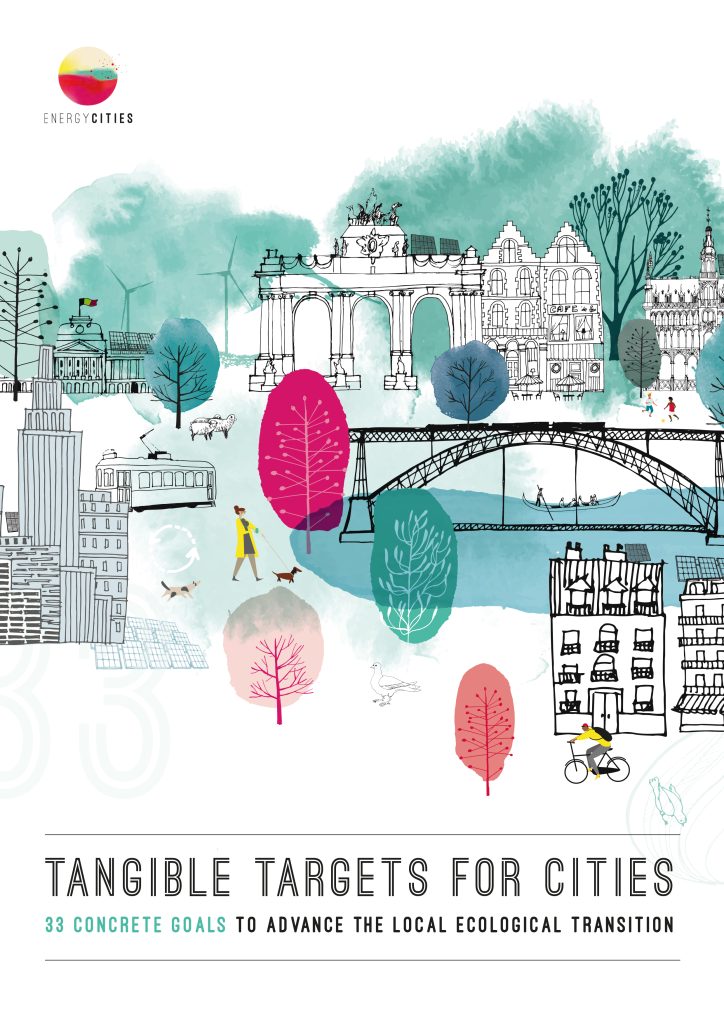No more advertising boards in public spaces…
And other tangible targets to cultivate climate consciousness among your city’s residents
For cities to mobilise citizens in their ecological transition, they need to ensure effective and constant communication with their residents around climate-related matters. Implementing a city’s action plan without properly informing and involving citizens is likely to lead to conflict, confusion, and roadblocks. Broadening support for your city’s climate action means setting up coherent and transparent communication that guarantees that residents are an integral part of the process.
You want to raise ambitions in your city and engage as many people as possible in the process? Take some concrete measures to consistently heighten awareness and inspire behavioural shifts among residents.
Find inspiration from a list of tangible targets for your city related to awareness-raising and prevention, inspired by citizens’ assemblies, local pacts and other projects across Europe.
One efficient communication system to warn citizens in case of climate emergency
The Citizen Covenant for Climate of Grenoble proposed that the municipality creates an efficient system to communicate with citizens (e-mails, SMS…) to warn them about climate emergencies of all kinds: floods, water or electricity restrictions, fires…
In the United-Kingdom, the local government associations have published a very complete guide on communicating during extreme weather. It includes a number of best practices for local authorities to use established efficient systems, based on the experience of various municipalities in dealing with extreme events.
Increase environmental awareness among citizens by 50%
In its roadmap, the Spanish city of Valencia declared its will to increase citizen awareness on environmental and energy issues, as well as the knowledge of good habits by 50% by 2030. This target is connected to the training that the city wants to provide, especially concerning the right to energy.
This goal refers to the UN Sustainable goal on climate action, on improving education, awareness-raising and human and institutional capacity on climate change mitigation, adaptation, impact reduction and early warning. In Spain, the City Council of Barcelona is coordinating a related project that plans to use schools as climate shelters. The project has a strong pedagogical dimension, aiming at changing school governance and empowering students to take actions on climate change related issues.
No more advertising boards in the public space
Grenoble is famous in France for its ban on public advertisements in the streets. A total of 326 billboards have been withdrawn as the result of a strong policy led by the Mayor Eric Piolle since 2015.
France stands as the frontrunner of advertising ban in Europe. Following Grenoble, the city of Nantes has very recently banned most electronic billboards. In January 2023, more than 110 billboards were removed. At the national level, the new climate law includes a ban of the promotion of fossil fuels.
More tangible targets for your city…
Are you looking to set ambitious targets for your city’s transition?
Find further inspiration in our Tangible Targets publication, which includes a comprehensive set of 33 targets spanning across food, housing, mobility, energy, biodiversity, circular economy, and awareness raising!
… Inspired by Citizens’ Assemblies
To compile this list, we largely drew inspiration from citizens’ assemblies focused on climate issues in various European cities. Many times, the measures debated and suggested in these assemblies are much more ambitious than the policies implemented. We hope that such measures emerging from Citizens’ Assemblies inspire bolder and faster action in cities across Europe, putting the citizen at the center of the transformational journey towards a climate neutral and resilient future.

Tangible Targets for Cities: 33 goals to advance the local and ecological transition.

